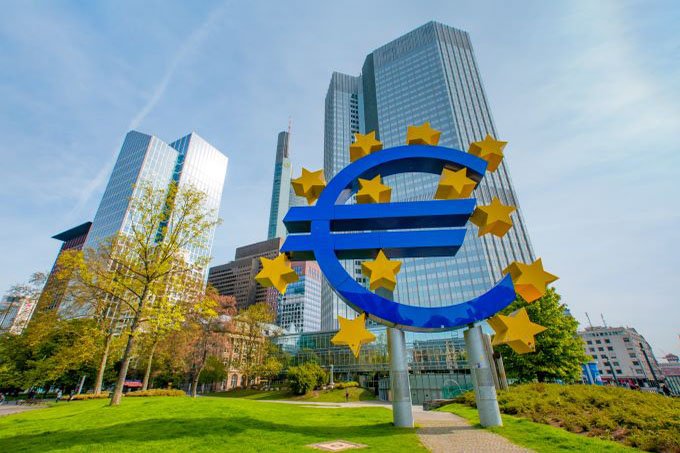Last week, the Euro dropped by 0.55 percent against the greenback, giving up part of the previous week's gains.
In terms of the economic calendar, the markets received important data about the state of the Eurozone economy, which weighed negatively on the Euro's performance.
On Tuesday Eurostat published August's Consumer Price Index (year-to-year) which stood at -0.2 percent after being at 0.4 percent in the previous month. The analysts expected it to drop to 0.2 percent, so the figure was way below the expectations. The organization also released the Eurozone unemployment rate, which was at 7.9 percent in July, worse compared to the previous month figure which was at 7.7 percent. Markit Economics published the Manufacturing PMI for August, which remained unchanged at 51.7 and in line with the analysts' expectations. The figure signaled an expansion of the Eurozone Manufacturing Sector, at the same pace as the previous month.
 The European Central Bank President, Luis De Guindos commented that there was an important boost in economic activity in the third quarter, despite the weakness that signals the recently released figures. Regarding the inflation level, he commented that he expects prices to keep falling in the short term, though highlighting that this trend could be over by next year.
The European Central Bank President, Luis De Guindos commented that there was an important boost in economic activity in the third quarter, despite the weakness that signals the recently released figures. Regarding the inflation level, he commented that he expects prices to keep falling in the short term, though highlighting that this trend could be over by next year.
On Wednesday, Eurostat released July's Producer Price Index which was at -3.3 percent (year-to-year) after being at -3.7 percent in June. The analysts expected it to be at -3.4 percent. In monthly terms, the Producer Price Index went up by 0.6 percent, after being at 0.7 percent on the previous month, the figure was over the analysts' expectations who foresaw it to be at 0.5 percent.
On Thursday Markit economics published the composite PMI which stood at 51.9 in august, showing an expansion in the Eurozone business sector. In the previous month, the composite PMI stood at 51.6, while the surveyed analysts expected it to remain unchanged. The retail sales figure for July, released by Eurostat, was at 0.4 percent (year-to-year), increasing way less than expected from the point of view of the analysts, who foresaw it to expand by 3.5 percent and lower than the previous month's figure, which was at 1.3 percent. In monthly terms, retail sales contracted by 1.3 percent after expanding by 5.3 percent on the previous month. The figure was way below the analysts' expectations, who foresaw it to expand by 1.5 percent
Now the European Central Bank is dealing with three main problems. The first one is the late appreciation of the Euro, which despite the late losses, advanced in August for the fourth consecutive month, gaining 1.38 percent. The second problem is the low inflation level, which persists despite the ultra-loose monetary policy stance of the European Central Bank. The third one is the fact that coronavirus cases in the Eurozone have been increasing recently, which weighs in on the Eurozone's economic outlook and adds to the current uncertainty.
Regarding the appreciation of the Euro, the ECB Chief Economist, Philip Lane commented that the exchange rate matters. The media reported that a European Central Bank committee member said that the bank's officials are beginning to feel uncomfortable regarding the strength of the Euro, which puts further pressure on the Euro's performance.
The Bank's governing council is expected to meet on Thursday to discuss the situation, though no relevant decision regarding the monetary policy is expected to be made.
